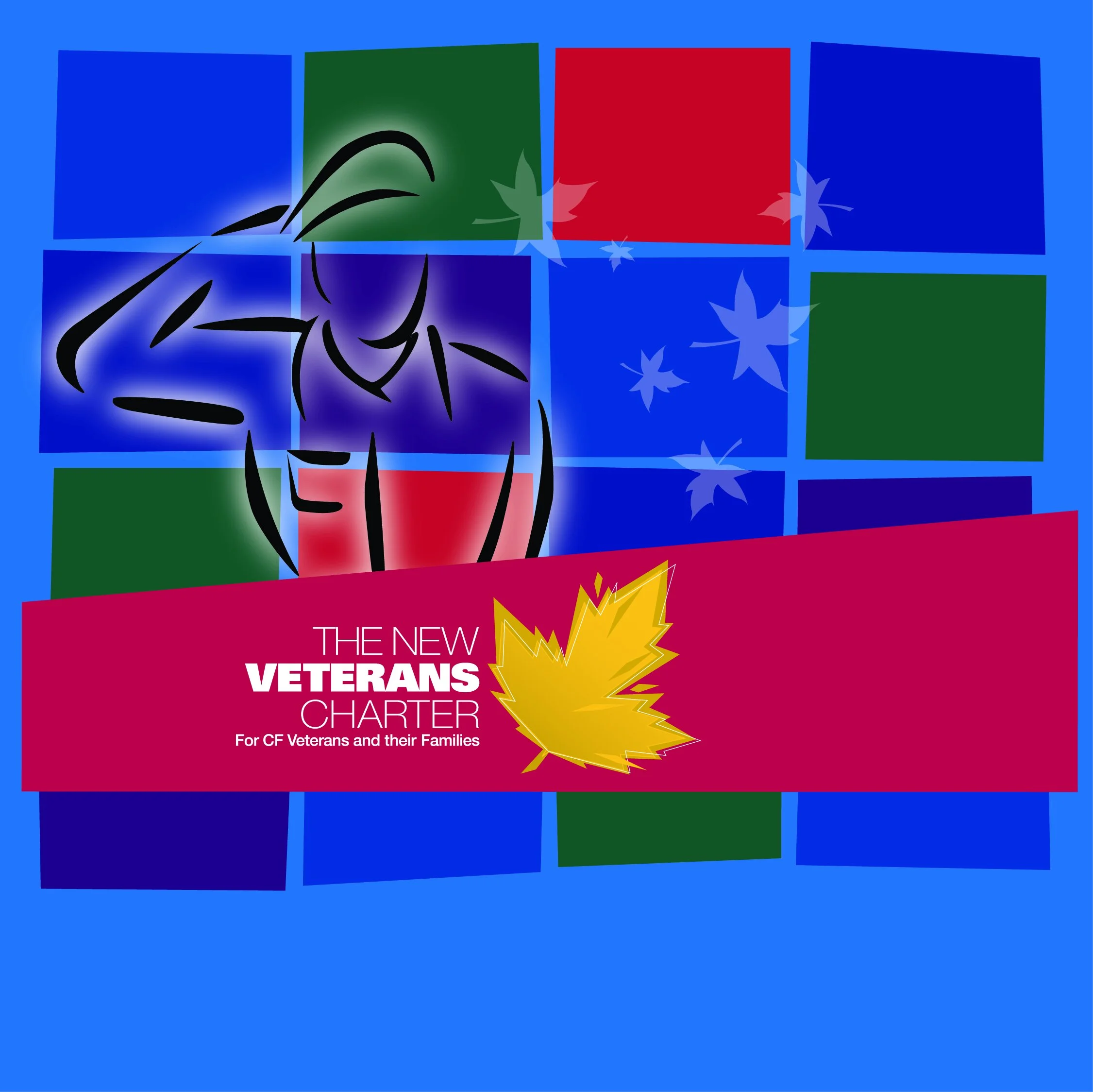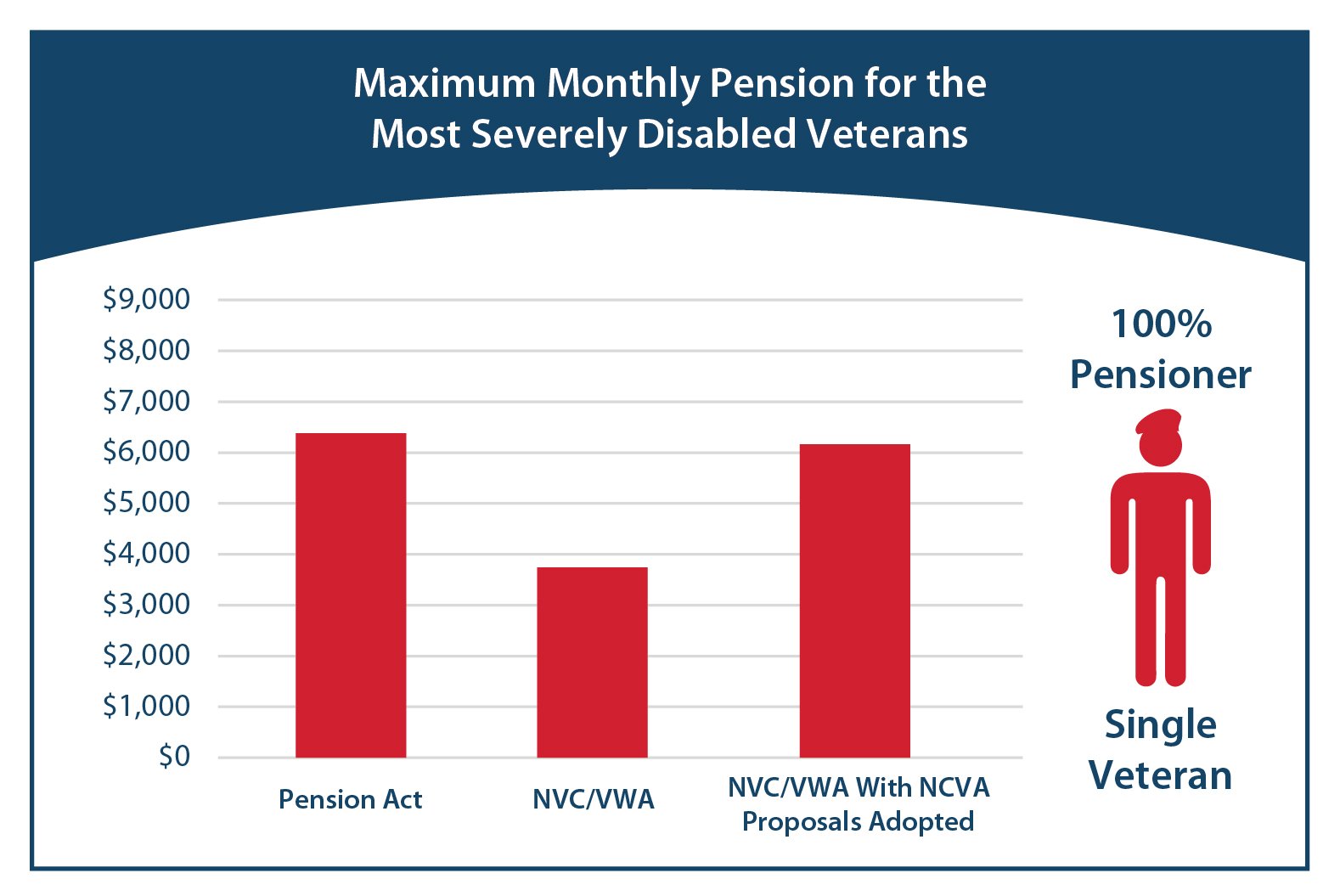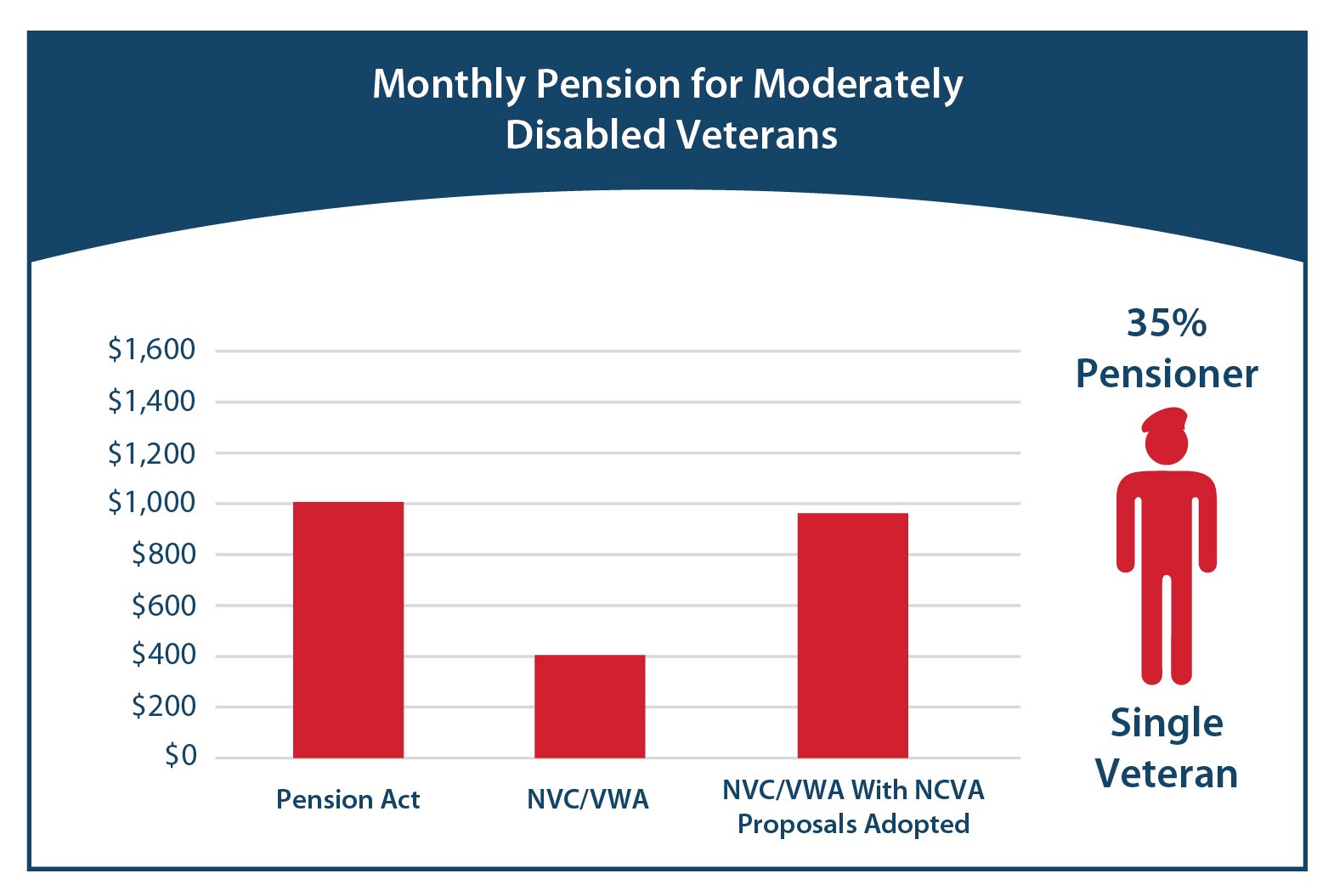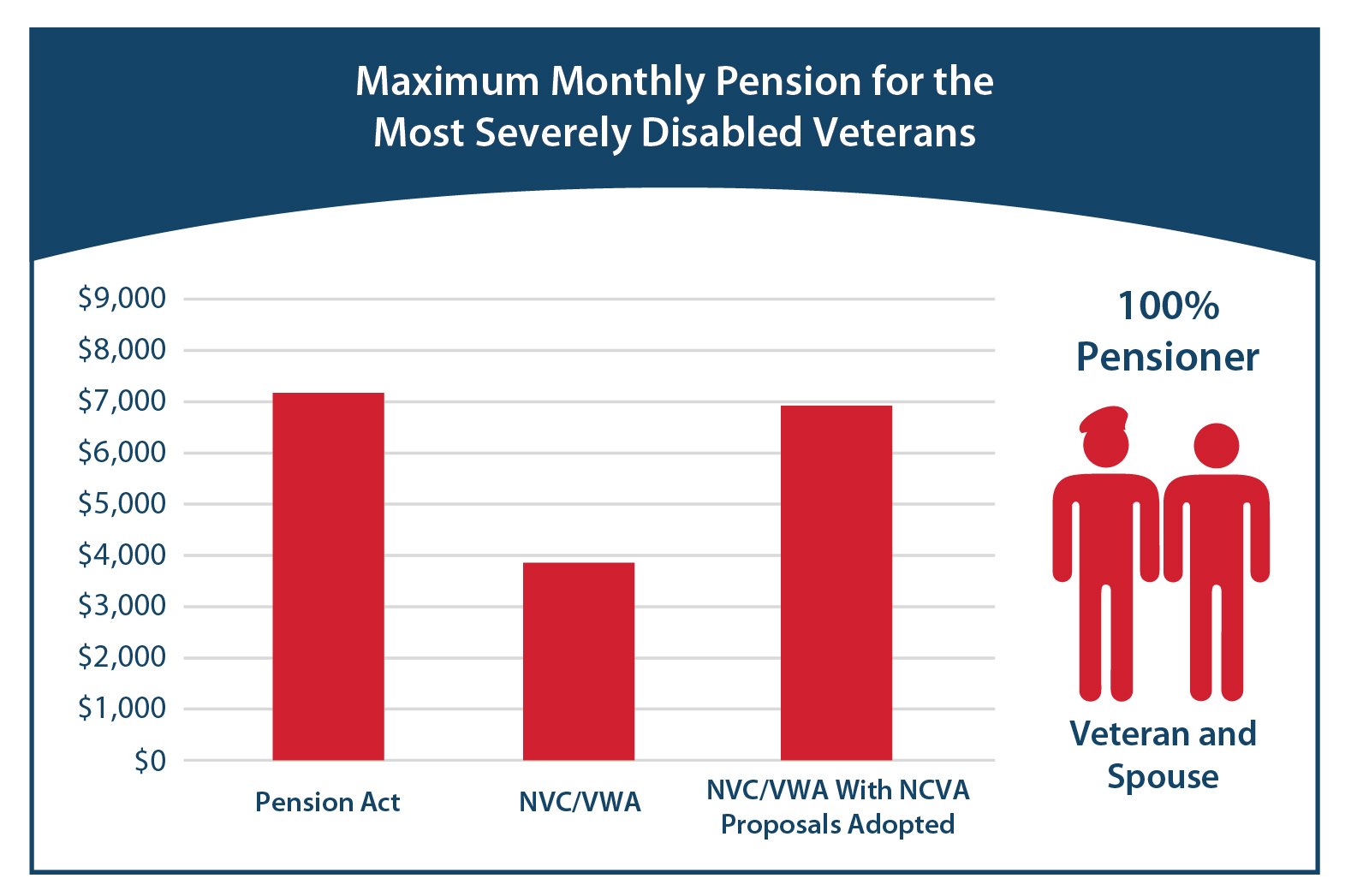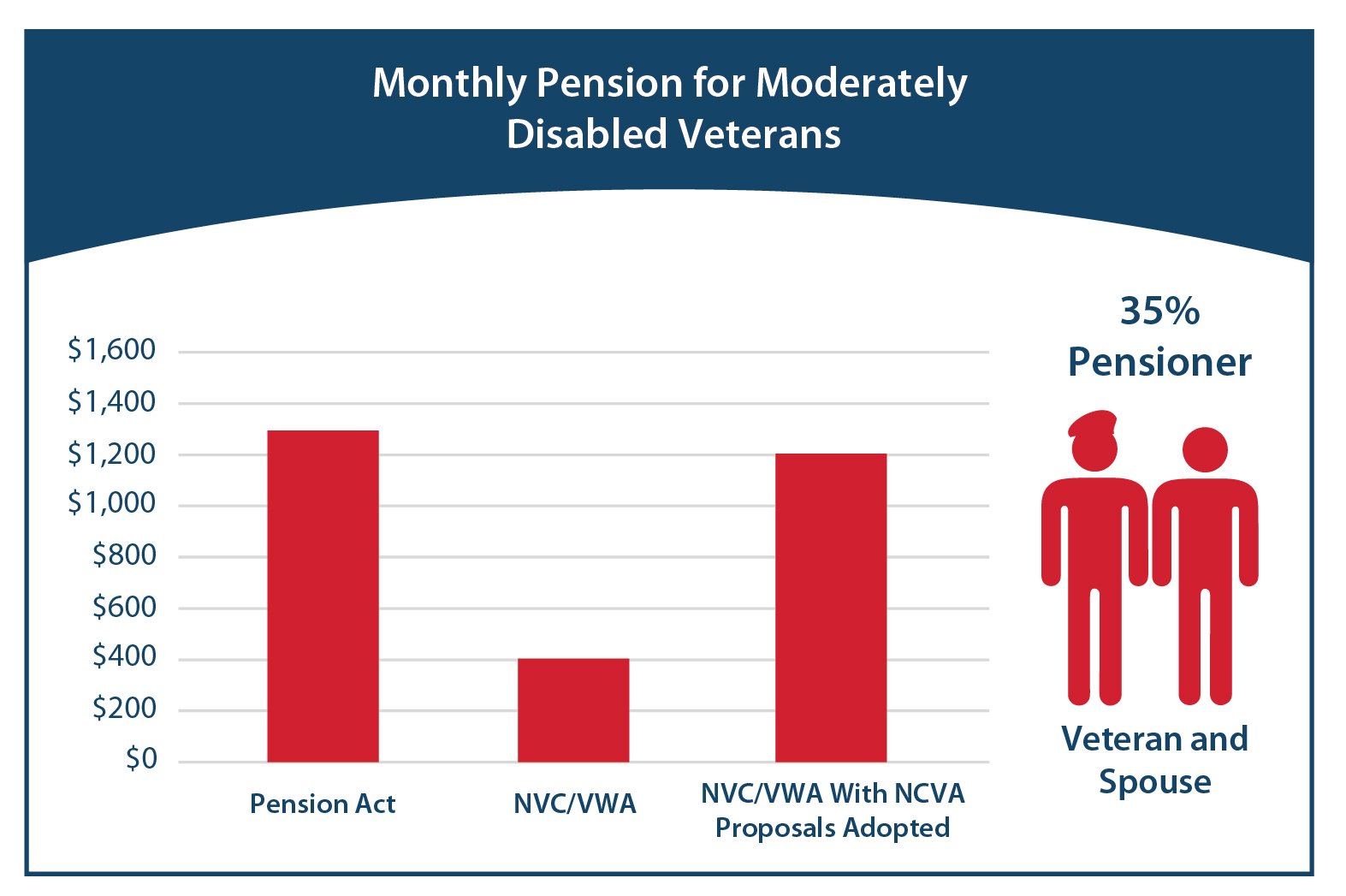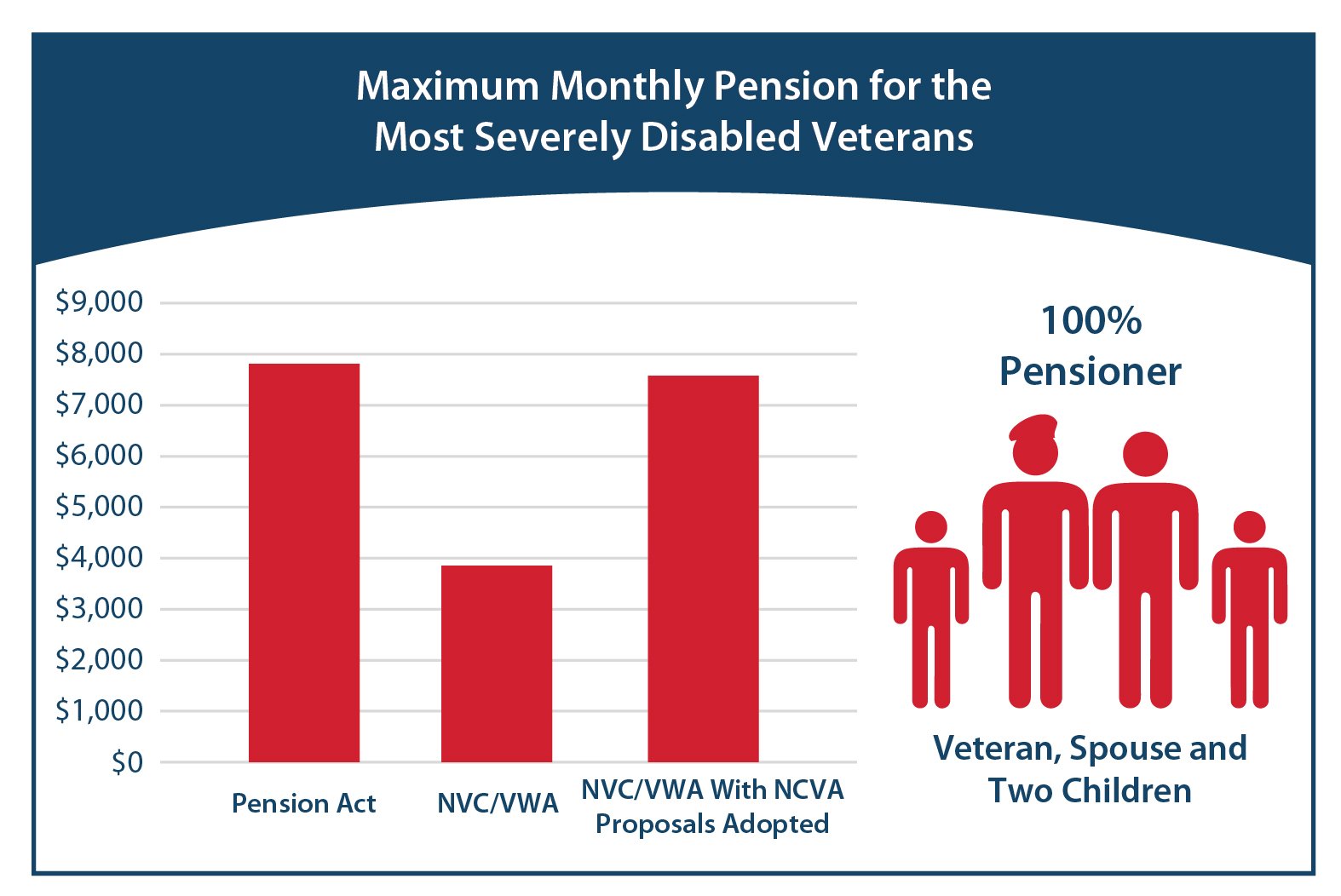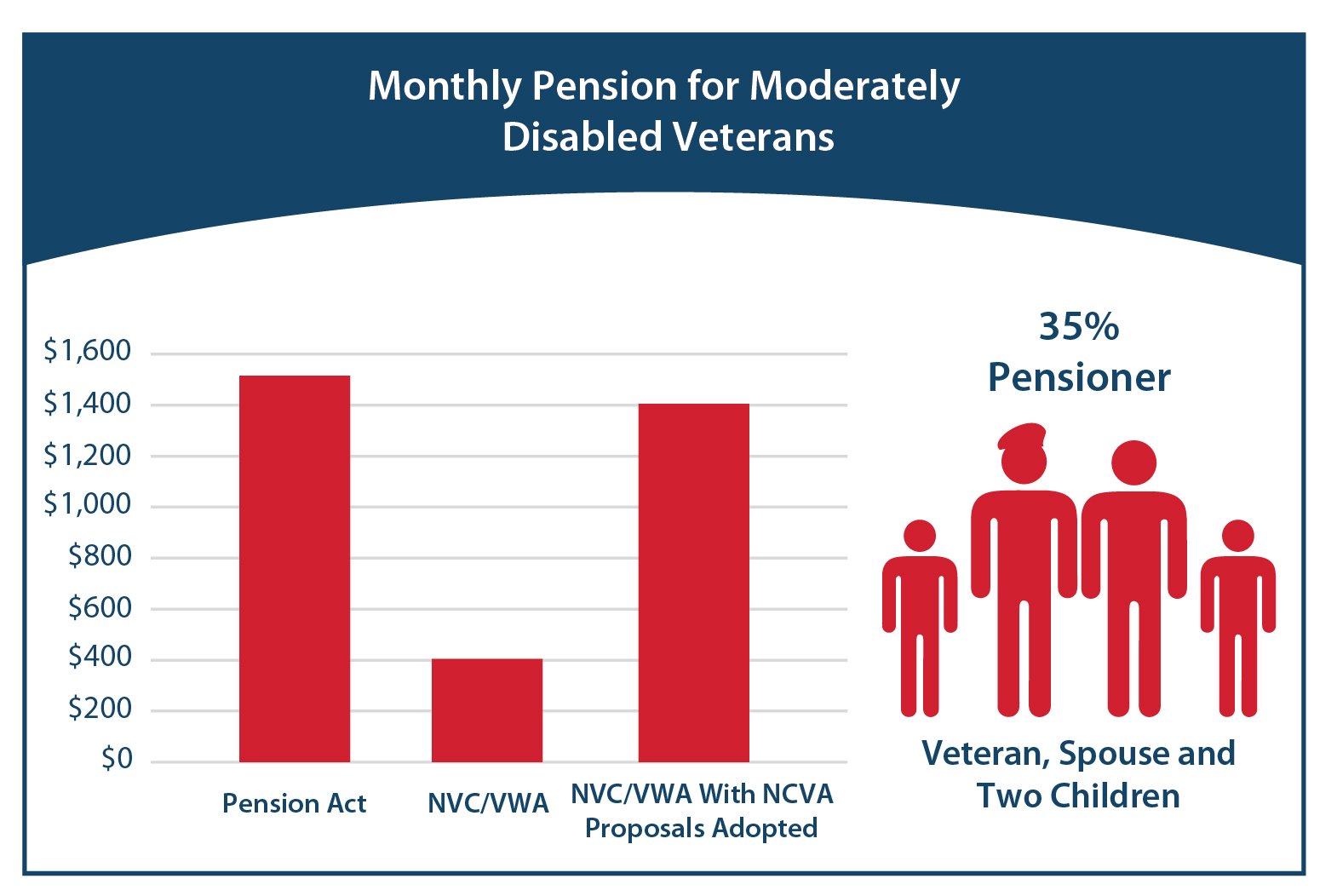By Brian Forbes, Chair of the National Council of Veteran Associations & Chair of The War Amps Executive Committee
It is the general consensus that the recent federal election has produced a “déjà vu all over again” result for the country.
Insofar as the veterans’ community is concerned, Lawrence MacAulay has been retained by the Federal Government in the veterans’ portfolio within Cabinet, and Anita Anand has been appointed the new Minister of National Defence.
Most importantly, there continue to be significant concerns with respect to veterans’ legislation, regulation and policy, necessitating further action by the Government and Veterans Affairs Canada to rectify the ongoing inequity and injustice impacting disabled veterans and their families
It is noteworthy that all federal parties have made significant election promises as part of their 2021 campaign platforms with respect to veterans’ issues. It will be our objective to ensure that these commitments are not just political puffery or window dressing but are actually pursued and implemented to meet the pressing needs of Canada’s veterans and their families.
The following represents a summary of the 2021-22 Legislative Program of the National Council of Veteran Associations (NCVA), approved by our 68 member-organizations, which outlines our overall recommendations for legislative and policy reform required by Canadian veterans and families. The full report can be found at https://ncva-cnaac.ca/en/legislative-program/
It is our intent to employ our new Legislative Program to support our position in our ongoing presentations to Parliamentary Committees, Ministerial Advisory Groups, VAC Deputy Minister Coffee Club/COVID-19 Task Force sessions, senior departmental officials of VAC/DND/Finance, and the national media.
VAC Backlog/Wait Time Crisis
Recommendation
NCVA strongly recommends that VAC recognize that fundamental systemic change is required and that the department needs to accelerate the adoption of fast-tracking protocols/automatic entitlement for outstanding veterans’ claims in order to alleviate the backlog and wait times which have only been compounded by the COVID-19 crisis.
Recommendation
That NCVA continue to pursue the utilization of presumptions in the VAC adjudicative system as outlined for many years in NCVA’s Legislative Program. The adoption of evidentiary presumptions to deal with common disabilities and consequential claims will create administrative efficiencies and have a significant impact on turnaround times for veterans’ claims currently in the backlog.
Recommendation
NCVA supports the adoption of the Standing Committee on Veterans Affairs report dated December 11, 2020, titled “Clearing the Jam: Addressing the Backlog of Disability Benefit Claims at Veterans Affairs Canada,” which accepted the majority of NCVA’s recommendations in alleviating the backlog/wait times crisis.
Recommendation
NCVA strongly recommends that the Government highly prioritize the implementation of the proposals contained in Budget 2021, insofar as the immediate granting of treatment benefits prior to the formal adjudication of the veteran’s disability claim.
Recommendation
NCVA recommends that VAC provide substantial financial funding to bolster the Veterans Emergency Fund to increase the maximum benefits per claim and to prioritize these applications during these challenging times. VAC should consider the utilization of the Veterans Emergency Fund as a stopgap measure for veterans awaiting disability pension claim decisions which have been inordinately held up by the current backlog conundrum.
Recommendation
NCVA proposes that VAC simplify veterans’ legislation and regulations so as to provide a more “user friendly” process and, in so doing, eliminate the complexities and legalistic provisions currently confronting veterans in making disability/health care claims.
Recommendation
NCVA takes the position that, to ease the transition from DND to VAC, disabled veterans should be fully apprised of benefits and entitlements, rehabilitation options and job alternatives, well before their medical discharge from the Canadian Armed Forces.
The “Elephant in the Room” in VAC Remains
Recommendation
NCVA takes the position that VAC, working together with relevant Ministerial Advisory Groups and other veteran stakeholders, should think “outside the box” by jointly striving over time to create a comprehensive program model that would essentially treat all veterans with parallel disabilities in the same manner as to the application of benefits and wellness policies – thereby resulting in the elimination of artificial cut‑off dates that arbitrarily distinguish veterans based on whether they were injured before or after 2006.
Recommendation
NCVA adopts the position that much more is required to improve the New Veterans Charter/Veterans Well‑being Act and that the Government needs to fully implement the Ministerial Policy Advisory Group recommendations presented to the Minister of Veterans Affairs and the Veterans Summit in October 2016 (together with the report to the Minister of January 14, 2020) with particular emphasis on:
(i) Resolving the significant disparity between the financial compensation available under the Pension Act and the New Veterans Charter/Veterans Well‑being Act;
(ii) Ensuring that no veteran under the New Veterans Charter/Veterans Well‑being Act would receive less compensation than a veteran under the Pension Act with the same disability or incapacity in accordance with the “one veteran – one standard” principle;
(iii) Utilizing a combination of the best provisions from the Pension Act and the best provisions from the New Veterans Charter/Veterans Well‑being Act, producing a form of lifetime pension in a much more realistic manner in order to secure the financial security for those veterans who need this form of monetary support through their lifetime; and
(iv) Addressing the ongoing layering of legislation and incremental changes over the years, ostensibly without consistent objectives and clearly defined outcomes, which has created a complex grid of eligibility criteria, differences in eligibility for benefits depending on when and where served, and inconsistency between policy intent and outcomes and expectations.
Pension for Life
Recommendation
In addition to the aforementioned fundamental proposals as to the overriding guiding principles for legislative reform, the following recommendations represent specific statutory and policy amendments in furtherance of this objective:
(i) Liberalize the eligibility criteria in the legislation and regulatory amendments for the new Additional Pain and Suffering Compensation benefit so that more disabled veterans actually qualify for this benefit. Currently only veterans suffering from a severe and permanent impairment will be eligible. It bears repeating that the greater majority of disabled veterans simply will not qualify for this new component of the proposed lifelong pension.
(ii) The Veterans Disability Award (PSC) initially granted to the veteran should be a major determinant in evaluating APSC (CIA) qualifications. It is the position of NCVA that this employment of the PSC percentage would produce a more straightforward and easier understood solution to this ongoing issue of APSC (CIA) eligibility.
(iii) Create a new family benefit for all veterans in receipt of PSC to parallel the Pension Act provisions in relation to spousal and child allowances to recognize the impact of the veteran’s disability on his or her family.
(iv) Incorporate the special allowances under the Pension Act, i.e., Exceptional Incapacity Allowance and Attendance Allowance, into the New Veterans Charter/Veterans Well‑being Act to help address the financial disparity between the two statutory regimes.
(v) Fine-tune the concept of Attendance Allowance, payable to informal caregivers, by adopting the amount paid under the Attendant Care benefit employed by DND so as to better recognize and compensate the significant effort and economic loss to support injured veterans. Moreover, VAC must ensure access reflects consideration for the effects of mental health injuries.
(vi) Lower the eligibility criteria for Exceptional Incapacity Allowance to cover those veterans under 98 percent disabled and who are confronting extraordinary incapacities as a result of their service‑related disabilities.
(vii) Improve the eligibility criteria for the Critical Injury benefit to include mental health injuries and evolving injuries.
(viii) Extend eligibility of the death benefit to the families of all deceased veterans.
(ix) In relation to the regulatory amendments emanating from the new legislation, NCVA expresses concern that the prerequisite for the APSC benefit with regard to the disability of amputation remains arbitrarily defined both as to eligibility and designated grade level. It is to be noted that amputation at or above the elbow, or at or above the knee is retained as a fundamental requirement for qualification in relation to a single limb amputee – the loss of a limb at any level represents a severe and permanent impairment for a veteran amputee. The current arbitrary distinction is not justified and should be amended.
Recommendation
NCVA continues to support the contention that the seriously disabled veteran should be given the highest priority in the implementation of the Government’s plan of action for legislative reform in regard to the New Veterans Charter/Veterans Well‑being Act and other related legislative provisions.
Recommendation
NCVA endorses the position that the Federal Government’s failure to fully implement a plan of action on reforming the New Veterans Charter so as to rectify the unacceptable financial disparity between the Pension Act and the NVC/VWA violates the social covenant owed to Canadian veterans and their families.
Recommendation
That NCVA require that DND and VAC employ all necessary financial, professional and personnel resources to identify, care and compensate veterans’ suffering from post‑traumatic stress disorder and that it is recognized that this insidious disability must be continually monitored to ensure the well being of such veterans.
N.B.: DND/VAC released a comprehensive report in 2018 entitled “Joint Suicide Prevention Strategy” which established a comprehensive set of protocols to address this entire question of PTSD and suicide. The veterans’ community will continue to monitor this policy very closely to determine how effective these proposals will be in addressing what many in the veterans’ community have described as a significant crisis.
Sexual Misconduct in the Canadian Armed Forces
Recommendation
There must be immediate meaningful and comprehensive cultural transformation in the DND and CAF to restore trust in the leadership. The men and women who serve our country deserve to work in an environment that is free from all forms of harmful behaviour.
Recommendation
There is a requirement for an external and independent reporting and investigation system outside the chain of command. This system must offer a reporting mechanism for incidents of sexual misconduct without reprisal, fear or isolation.
Recommendation
There must be accountability for the actions of those who engage in this abhorrent and unacceptable behaviour.
Recommendation
There must be resources and support for all victims of sexual assault including CAF members and veterans.
Recommendation
Lastly, to effect and ensure meaningful change and oversight, the Government must establish a fully independent Office of the Inspector General of the DND and the CAF reporting to Parliament.
If the Government and the CAF do not take immediate action on these recommendations, we are failing the men and women who served and continue to serve this country.
Veterans Legislation and Policies
· Benefits to Support Families/Veteran Caregivers
Recommendation
VAC should:
a) Incorporate into the NVC/VWA the eligibility standards of the Attendance Allowance provisions under the Pension Act, together with the amount of allowance described in the Attendant Care Benefit (DND) for caregivers of disabled veterans. This will address the need for financial support of family caregivers of disabled veterans and, at the same time, help to rectify the financial disparity between the two statutory regimes.
b) Fine-tune the concept of Attendance Allowance payable to informal caregivers to recognize and compensate the significant effort and economic loss to support injured veterans and ensure access reflects consideration for the effects of mental health injuries.
· Create a new family benefit for all veterans in receipt of Pain and Suffering Compensation to parallel the Pension Act provisions in relation to spousal and child allowances to recognize the impact of the veteran’s disability on his or her family.”
· Career Impact Allowance
Recommendation
Establish a newly structured Career Impact Allowance which would reflect the following standard of compensation: “What would the veteran have earned in his or her military career had the veteran not been injured?” This form of progressive income model, which has been recommended by the MPAG and the OVO, would be unique to the New Veterans Charter/Veterans Well‑being Act and would bolster the potential lifetime compensation of the disabled veteran as to his or her projected lost career earnings, as opposed to the nominal one percent increase provided in the proposed legislation.
• NCVA encourages VAC to revisit the MPAG proposition of consolidating the Income Replacement Benefit and a newly structured CIA to provide a single stream of income for life which would include the “projected career earnings” approach.
• Access to the new structured CIA benefit should be available through the lifetime of the veteran, providing a financial safety net that includes application to pre‑ and post‑release income scenarios.
· New Veterans Education and Training Benefit
Recommendation
NCVA proposes that VAC eliminate the limitation as to the applicability of the new Veterans Education and Training Benefit so as to make this particular benefit available to all veterans and not just those who have served since April 1, 2006.
· Partial Disabilities
Recommendation
NCVA strongly recommends that VAC grant automatic entitlement to those veterans currently in receipt of consequential or partial entitlement rulings at one-fifth/two-fifths/three-fifths to a four-fifths level of assessment. In so doing, the department will address a significant amount of the backlog in relation to the numerous appeals that are currently in the department system re: fractional awards.
· SISIP LTD/VOC‑REHAB Programs
Recommendation
NCVA continues to take the long-held position that SISIP LTD/VOC‑REHAB should be eliminated, placing all SISIP LTD and VOC‑REHAB under VAC for all service attributable and non‑service attributable medical releases with no premiums – one program/one service delivery model.
· Post‑65 Benefits
Recommendation
NCVA proposes that VAC should establish that the Income Replacement Benefit (former Earnings Loss Benefit) be continued for life without deduction and that the post-65 diminishment be eliminated as the financial plight of the eligible seriously disabled veteran at age 65 remains unchanged.
Long‑Term Care/Intermediary Care
Recommendation
That NCVA ensure that VAC adopts a flexible policy to provide veterans with a freedom of choice between a community bed and a priority access bed for purposes of admission to long‑term care facilities without distinction between traditional and modern day veterans.
Recommendation
That NCVA urge VAC to increase the number of Preferred Admission beds in order to address the demands of modern day veterans and, in so doing, eliminate the current wait list for these beds across the country.
Recommendation
In conjunction with the settlement arrived at between the residents of Ste-Anne’s Hospital, the Federal Government and the Provincial Government, NCVA calls on Veterans Affairs Canada, in accordance with the terms and provisions of the settlement documentation, to protect the interests of veterans affected by the transfer. The governments must also ensure that the provisions found in the transfer agreement established to support the commitments made in relation to priority beds for veterans, language rights and the standard of care are strictly enforced, and that enhanced funding is put in place by the Federal Government to satisfy this class action settlement.
Recommendation
That NCVA continue to collaborate with VAC to ensure that the adult residential care needs of the veteran are addressed through the expansion of the current VIP program and long‑term care policy of the department so as to provide financial assistance in this area of institutionalized care.
Recommendation
That NCVA continue to work with the OVO in drawing to the attention of the Liberal Government the inequity that has resulted in the gap that currently exists in the VAC health care regulations concerning financial coverage for adult residential care.
VIP For Life for Surviving Spouses
Recommendation
That NCVA continue to pressure the Minister and departmental officials to review the present policy on the continuation of VIP for Life for surviving spouses with a view to providing this benefit to, at a minimum, all surviving spouses of seriously disabled veterans who are not eligible because the veteran never applied for the benefits.
Recommendation
That the Minister of Veterans Affairs alter the Government’s current position so that:
1. The needs of the surviving spouse should determine the benefit required (housekeeping or groundskeeping) instead of the present practice of basing the decisions on the specific VIP benefit the veteran was receiving prior to his or her death; and
2. Section 16 and Section 16.1 of regulations be amended so as to eliminate the absurd anomaly whereby a surviving spouse who fails to qualify for VIP based on their spouse’s VIP status cannot utilize their GIS or DTC eligibility for the purposes of their own VIP entitlement.
Last Post Fund/Veterans Burial Regulations
Recommendation
That NCVA continue to pressure the Minister of Veterans Affairs to ensure that, at a very minimum, seriously disabled veterans entitled to a disability pension at 78 percent or more (SDVs) qualify, as a matter of right, under the Veterans Burial Regulations/Last Post Fund.
Marriage After Sixty and Public Service Pensions
Recommendation
That NCVA continue to pressure the Minister of Veterans Affairs and the Minister of National Defence to remove Section 31 of the Canadian Forces Superannuation Act so as to allow the spouse of a Canadian Armed Forces retiree marrying after 60 to be eligible for survivor’s benefits without reducing the amount of superannuation in payment to the retiree in accordance with the Liberal Party’s election platform of 2015. NCVA takes the position that this amendment to the CFSA would be a more optimal solution when compared to the nebulous Veterans Survivors Fund contained in the 2019 federal budget.
Recommendation
NCVA recommends that, to ensure fairness for CAF veterans employed in the public service and consistency with existing government policies, the definition of Group I under the PSSA be amended to include CAF members who have elected to transfer their pensionable military service from the CFSA to the PSSA where the start date of the military service was before January 1, 2013.
Recommendation
NCVA adopts the position that the Public Service Health Care Plan be amended so that seriously disabled veterans and their families be exempted from paying premiums for such coverage or, alternatively, that VAC should cover these contributions so as to alleviate this financial burden on seriously disabled veterans and their dependants.
Recommendation
NCVA will continue to assess the operation of the Canadian Forces Superannuation Act to ensure that the interests of veterans and their survivors are protected and that inequities are remedied by the Federal Government departments charged with the responsibility of administering the CFSA.
Indigenous Veterans
Recommendation
NCVA will continue to evaluate the implementation of the 2019 budgetary proposal to provide ex gratia payments of $20,000 in compensation to Métis veterans still alive and to the estates of Métis veterans, together with the establishment of the legacy fund commemorating the exemplary service of Métis veterans in support of Canada’s war effort.
NCVA will closely monitor all federal leaders to determine which party is prepared to make a substantial commitment to addressing the shortfalls and inequities which continue to exist in veterans’ legislation. In this regard, all federal parties have made significant election promises as part of their 2021 campaign platforms with respect to veterans’ issues (which we have delineated in our Legislative Program). It will be our objective to ensure that these commitments are not just political puffery or window dressing, but are actually pursued and implemented to meet the pressing needs of Canada’s veterans and their families.



